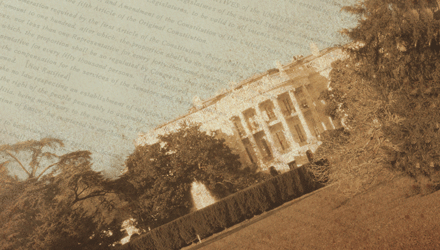
Who should read this book?
Everyone who is concerned about the future of civil liberties in America and wants to understand how our presidents have defended and not defended basic American rights. Will the current standards of church and state survive? Will we have another president who makes excessive claims of presidential power in the area of national security? These are but two of many such questions.
Are there readers who might disagree with some of your findings?
This book has something to upset everyone. Liberals will be dismayed at the analysis of Presidents Wilson, Franklin D. Roosevelt, Truman, Kennedy, Johnson, and the rest, including Barack Obama. Conservatives will be embarrassed at the analysis of Eisenhower, Nixon (although not surprised by what they read), Reagan (very surprised), and George W. Bush (not surprised but very embarrassed).
‘Civil liberties’ refer to the freedoms guaranteed to the American people under the Bill of Rights. What role do civil liberties play in a democracy and what happens when they are violated or denied?
Freedom of speech and press, equal protection, and due process of law are fundamental to American democracy. Violation of these rights violates the very core values of our democracy. The internment of the Japanese Americans by President Roosevelt in World War II and President Nixon’s crimes in office (obstruction of justice by a sitting president) are the most shameful chapters in American history.
You conclude that presidents have been ‘poor custodians’ of civil liberties in American democracy. What exactly do you mean by this phrase? What could a president do in order to be a ‘good’ custodian of civil liberties? And apart from the President, are there others in power involved the handling of these freedoms, such as the Supreme Court?
A president is the leader of the nation. In addition to the formal powers of office, the president is the symbolic leader who embodies the nation’s values. Presidents, then, should defend and advance the core values embodied in the Bill of Rights. Freedom of speech and press are hardly in the same category as the capital gains tax rate. The book documents how often presidents have violated the Bill of Rights, and how rarely they have defended our fundamental liberties in times of crisis.
How has your involvement with the American Civil Liberties Union (ACLU) shaped your thinking?
My extensive involvement with the ACLU at both the state and national levels has had a profound impact on my thinking. It has forced me to confront issues that I otherwise would not have and also to formulate a position on difficult questions. It is simply the best graduate school I ever attended.,
You describe how the history of civil liberties and presidents is replete with surprises. What was the most surprising thing you learned during the course of researching and writing the book?
I was familiar with the major events: the Japanese American internment, the Cold War, Nixon, the War on Terrorism. I was most surprised by the complexity of the issues with almost every president. So many presidents did some very good things regarding civil liberties at the same time they were doing very bad things. Truman, for example, had an outstanding record on civil rights while also launching the Cold War with his Federal Loyalty Program.
You accomplish the delicate balancing act of offering a non-partisan account of the civil liberties record of each president. Did you find yourself having to re-evaluate your political beliefs and/or historical understanding during the course of, or in light of, writing this book?
I certainly changed my opinion on many presidents, but my work on the book only strengthened my belief in the importance of civil liberties.
What would you consider to be the greatest violation of civil liberties in the history of the United States?
Sadly, that is a very competitive category. Many historians and other Americans nominate the internment of the Japanese Americans. Others argue that it was Wilson’s complete suppression of dissent in World War I. But when you consider the number of people affected, the full length of time involved, and the range of issues (basically everything), the greatest violation has to be race discrimination. Even though de jure segregation has been abolished, discrimination continues today in innumerable ways.
What has been Obama’s first-term contribution to the chequered history of presidents and civil liberties? How has his record on these freedoms colored the debates central to the upcoming election?
Obama has a good but also profoundly mixed record. He has been very good on civil rights enforcement, women’s rights, voting rights, and other issues. On national security he has been more restrained that George W. Bush on some issues, but at the same time has continued many of Bush’s offensive policies and launched some very dangerous initiatives. The worst part of Obama’s policies include his infatuation with drones as an instrument of foreign policy, his commitment to targeted killings, and the secrecy that he surrounds them with. These policies will leave a dangerous legacy. So, with good and bad elements, Obama’s record on civil liberties is comparable to what characterizes so many other presidents.
What are the challenges facing the president we elect this coming November as far as our democratically legislated freedoms are concerned?
The right to vote is under attack all across the country. This is a fundamental issue of democracy. There is also a war on women’s rights, including mainly reproductive rights and health issues, that is very, very serious. Race discrimination, in all of its manifestations, remains a fundamental challenge to the promise of America.
Samuel Walker is Professor Emeritus of Criminal Justice at the University of Nebraska at Omaha. He is the author of 13 previous books on policing, criminal justice policy, race, ethnicity and criminal justice, and civil liberties. They include In Defense of American Liberties: A History of the ACLU (1990), Hate Speech (1994), and Sense and Nonsense about Crime (7th ed., 2012).
Latest Comments
Have your say!